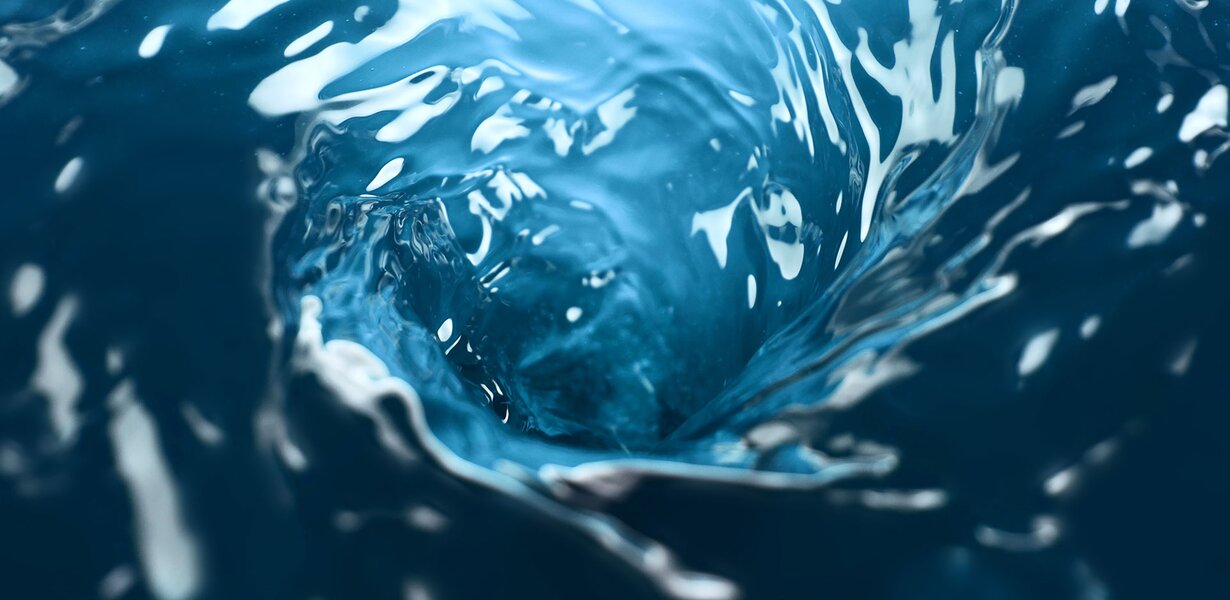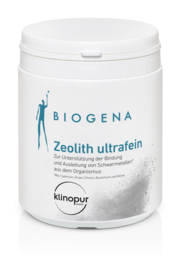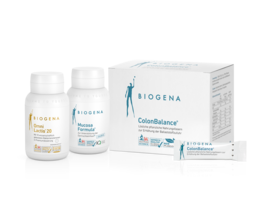Do you also want to reboot your body physically? Perhaps this is because of a period of doing nothing, a New Year’s resolution, a promise for Lent or just a spontaneous decision.What could be better than restoring the status quo of your no. 1 well-being organ, the gut, with a proper cleansing and care programme? But how does gut remediation work – from bowel cleansing to bowel reconstruction? And how long can you expect this to take?
What is gut remediation?
Gut remediation or cleansing is a term that we repeatedly come across in health magazines and other areas of healthcare. The word cleansing is derived from the Latin "sanare", which means healing or restoration. Depending on experience and training, specialised doctors and therapists select different procedures for gut remediation. Gut remediation therapies often include three stages, which can flow into one another:
- Bowel cleansing
- Targeted treatment of disorders of the intestinal mucosa (e.g. inflammation, leaky gut) and/or intestinal flora (e.g. yeast fungi, Clostridium difficile) and
- strengthening of a healthy intestinal mucosa and/or intestinal flora
In an ideal scenario, a detailed laboratory diagnostic determination is preceded by intestinal cleansing, which shows the current state of the intestinal flora and the intestinal mucosa. This allows the treating physician/therapist to respond more specifically to the individual gut situation.
Tips & instructions for DIY gut remediation
If you would like to carry out a bowel detox at home, you can use the following simplified 2-step programme.
Step 1: Natural bowel cleansing
In gut remediation, we start with a cleansing step. Laxatives such as Glauber’s salt, castor oil and enemas are often recommended for bowel cleansing. But merely emptying the bowels is not yet bowel cleansing.Ideally, bowel cleansing should begin with a fast. This helps the gut to regenerate. The diet should be plant based and natural (e.g. vegetables, legumes, fruits) as well as plenty of liquid (especially water, unsweetened tea). Alcohol, caffeine, sugary foods, meat and sausages should be avoided as much as possible during gut remediation.The following natural ingredients can also be used for targeted bowel cleansing:Psyllium husks and linseed: Two other natural ingredients that aid the digestion are psyllium husks and linseed. Both have digestible mucins (soluble fibre), which soften the stool and facilitate bowel emptying upon contact with fluid. Studies show that psyllium seeds also alleviate inflammation of the intestinal mucosa.
Zeolite: Like a special sponge, its enormous surface absorbs environmental pollutants* in our intestines and thus prevents these hazardous substances from entering our organism. Once it is securely bound to the zeolite, the pollutant load can be disposed of in the faeces. The use of zeolite not only purifies the intestines, it also detoxifies our entire system, since many pollutants simply do not have the opportunity to enter the body via the gut. Biogena tip: Zeolite ultra fine
* Ammonium and heavy metal ions – in particular lead, cadmium, arsenic, chrome and nickel
Step 2: Natural strengthening of the intestines
A start on strengthening the intestines can be made even during bowel cleansing. This includes the care of the intestinal mucosa and the reinforcement of the useful intestinal bacteria.
What encourages the intestinal flora? And what cares for the intestinal mucosa?
Prebiotics: Prebiotics such as inulin, dextrin, acacia fibres or citrus pectin serve as feed for the beneficial intestinal bacteria, which not only form an important component of the intestinal barrier, but also contribute to the vitality of our intestinal mucosa with their metabolic products. Biogena tip: ColonBalance®
Probiotics: Probiotics are preparations with useful intestinal bacteria that promote the proliferation of good intestinal microbes and suppress pathogenic (illness-producing) germs. In the course of intestinal strengthening, a high-dose multi-strain preparation with several scientifically tested bacterial strains should be the first choice. Biogena tip: Omni-Lactis® 20
Tailor-made intestinal nutrients: Our intestinal mucosa is a true wizard when it comes to cell division and completely regenerates every three days. To master this amazing achievement, its micronutrient needs must be constantly met. L-glutamine is an amino acid essential for the functioning and integrity of the intestinal mucosa. It serves as an important source of energy for rapidly dividing cells and in particular, it reduces increased intestinal permeability. Our mucosa is also supported by the targeted supply of mucous membrane vitamins (vitamin A, pantothenic acid, vitamin B2) as well as nutrients that strengthen the (bowel) immune system (vitamins C and D, zinc, selenium). Biogena tip: Mucosa Formula®
Zeolite: The natural mineral zeolite not only has a gut-cleansing effect, it can also be helpful for permeable intestinal mucosa (leaky gut). In an Austrian placebo-controlled double-blind study, the twelve-week intake of 1.85 g zeolite per day helped 52 athletes to regenerate their "leaky" bowel.
Special plant substances: "There is a herb for every condition." When it comes to the bowel, it’s a veritable herb garden. The selected plant extracts act at different levels. They can deal with miscolonisation and/or oxidative stress in the intestines as well as alleviate inflammation and irritation of the intestinal mucosa. Good experiences have been reported with extracts of green tea, camomile and grape seeds. These natural remedies help maintain mucosal integrity and health.
How long does bowel cleansing take?
he ideal time period for gut remediation varies from person to person. While the physician or therapist adjusts the duration to the findings, a 1-month cure is optimal in most cases for DIY gut remediation. Depending on your gut feeling, the treatment can easily be extended by a few weeks.
How often does bowel cleansing make sense?
Depending on lifestyle and diet, bowel cleansing can be performed once or twice a year. Anyone who has undergone bowel cleansing by an expert and then treats their bowel well generally no longer needs regular bowel cleansing.
How do we keep the intestines happy after gut remediation? 5 intestinal care tips:
Anyone who has successfully whipped their bowel into shape should make sure that the good gut feeling persists. But what makes our gut happy? Here are our top 5 natural digestive agents:
1. Provide intestinal mucosa with micronutrients
The intestine is the largest contact surface to the outside world. With a length of around four to six metres and a diameter of just a few centimetres, the intestine has more surface area than it appears at first glance. With its many villi and its winding shape, its overall surface almost corresponds to that of a tennis court. This amazing size ensures that the immense absorption area that we need for all the vital nutrients that we regularly supply from the outside is available. In order to ensure that the intestinal mucosa itself does not miss out, it should be well supplied with vitamin A, vitamin B2, niacin and biotin, which contribute to the maintenance of normal mucous membranes.
2. Build up intestinal flora with intestinal bacteria
Our intestinal flora is a fascinating place. It is unique like a fingerprint, has a population of around 100 trillion and is one of the world’s most densely populated locations. Many of us know that the intestinal flora has a great say in terms of health and well-being. It is therefore all the more important that the "good guys" among our microscopically small fellow residents feel comfortable. The intestinal bacteria are particularly fond of soluble fibres, which are found primarily in plant foods such as linseeds, psyllium seeds, chicory, apples and citrus fruits (citruspectin).
3. Fill up with bitter substances
As far as our liver is concerned, bitter substances are definitely not a “bitter pill”. In order to understand the significance of bitter substances for our intestines, two completely different organs come into play: the liver and its auxiliary organ, the bile. Both organs provide important cooperation when it comes to the digestive process (e.g. fat digestion). Selected plants that are rich in bitter substances, such as artichokes, can stimulate the liver/bile system. A well-functioning liver/gall bladder system ultimately also supports our intestines in their daily digestive activity. Biogena tip: Bitter Magic
4. Gut-friendly diet for intestinal care
An estimated 30 tons of food and 50,000 litres of fluid pass through the human intestine over the course of 75 years – together with countless pathogens, toxins and unusable materials. It is therefore hardly surprising that the composition of the chyme (semi-fluid mass of partly digested food) that churns through our intestines on a daily basis affects the contact surface of the gut. Versatile, unprocessed, organic, homegrown and primarily plant-based – this is what the gut-friendly diet should look like. For the sake of our intestines, however, sugar, fatty meat, alcohol and ready meals should be avoided as much as possible. The latter in particular often contain a wide range of artificial additives that damage the intestinal flora.
5. Stimulating digestive activity through exercise: Ready for a workout?
A well-regulated digestive system is generally only appreciated once it stops working properly. In addition to nutrition, our activity level also affects our digestive activity. For example, couch potatoes may find it harder to get their digestive systems to work properly than those who exercise. The good news: We don’t have to work up a sweat every day in order to get our bowels moving. People who regularly enjoy modest exercise sessions (special pelvic floor abdominal exercises such as cycling with their legs in the air or doing scissors, abdominal massages) can activate bowel activity in a targeted and gentle manner.
Gentle endurance training such as cycling, swimming, running or walking is also ideal. Abdominal massages can further stimulate digestion.
Conclusion: Generally, not much is required for natural bowel care. A gut-friendly diet, exercise and the right nutrients are important steps to keeping our sensitive gut and its multifaceted ecosystem healthy and happy.
What is good for the bowel? The most important food components in the intestines:
Nutritional component | Found in |
Vitamin A / beta-carotene | Eggs, butter, cheese, liver, carrots, spinach, apricots, mangoes |
Vitamin B2 | Milk, dairy products, wholegrain cereals, lean meat |
Niacin | lean meat, fish, coffee, peanuts, Mushrooms |
Biotin | Egg yolks, yeasts, soya beans, nuts, oat flakes |
Bitter substances | Dandelion, chicory, endives, artichoke |
Fibre | Plant-based foods such as flaxseed, psyllium seeds, legumes, whole grain products, black salsify |
Literature with the author.













